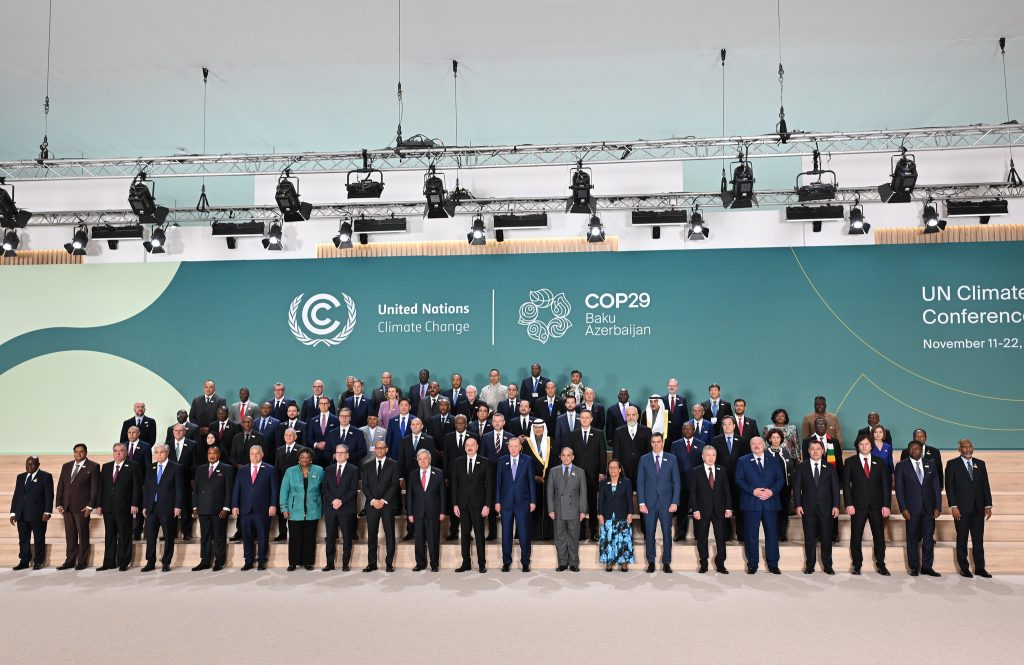Despite the fact that women and girls are disproportionately affected by the climate crisis and often lead the way in community-based adaptation efforts, only 8 out of the 78 world leaders at this year’s conference are women states Care International.

Photo: COP29
As COP29 gets underway, CARE International has raised serious concerns about the gender imbalance in climate leadership. Despite the fact that women and girls are disproportionately affected by the climate crisis only 8 out of the 78 world leaders at this year’s conference are women. The underrepresentation persists even as the number of delegates at the United Nations Framework Climate Change Conference (UNFCCC) grows, with women making up just 34% of delegates at COP28, and only 2% of delegations achieving gender parity.
Experts from CARE stress that this persistent gender gap undermines the effectiveness of climate governance. Rosa van Driel, a Policy Advisor on Climate Justice, emphasized that ignoring women’s voices means missing out on fairer, more sustainable solutions. Francesca Rhodes from CARE International UK highlighted the irony of gender inequality in decision-making, given that women and girls face the brunt of climate impacts. The UK Government, she urged, must follow through on its commitments by ensuring climate finance supports women’s rights organizations and grassroots efforts.
Titilope Gbemisola Akosa, Executive Director of the Centre for 21st Century Issues and CARE partner, pointed to Nigeria as a prime example of women spearheading adaptation efforts despite facing severe climate impacts. She called for international recognition of the expertise and leadership women offer, stressing that excluding them is unacceptable as the world grapples with escalating climate challenges.
To read the original reporting see Care International.

